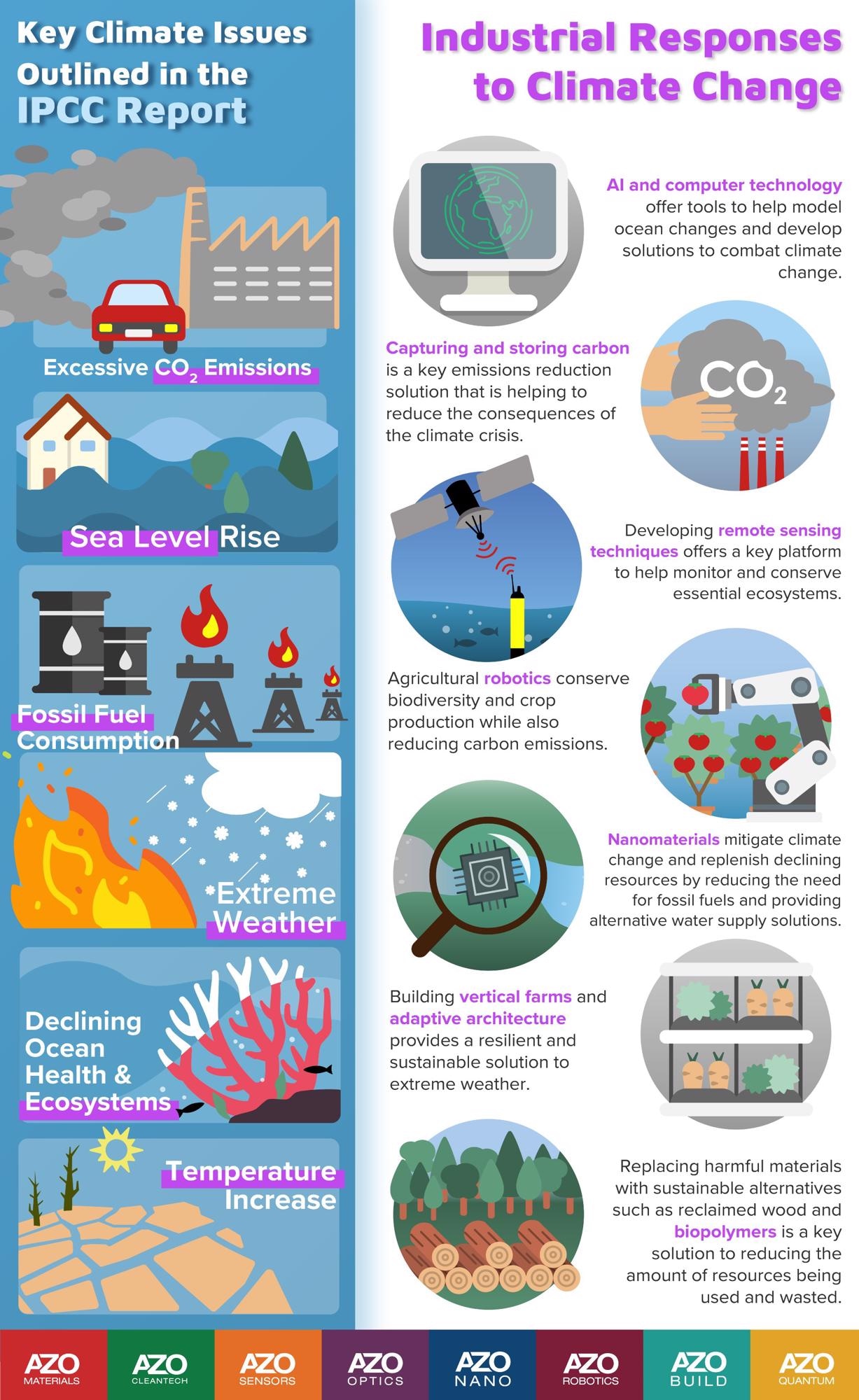
Limiting adverse environmental impact is always at the forefront of innovation in the Clean Technology industry. This dedication is now more critical than ever.
In 2018, a special report was released by the Intergovernmental Panel on Climate Change (IPCC), focusing on the 1.5 ºC global temperature increase. The report offered an in-depth look at the consequences of this change on the climate system and emphasized the necessity to design adaptive solutions.
A statement from the Summary for Policymakers warned of the significant consequences of carbon emissions on our environment and the need to upscale technologies designed to reduce the effects: "Future climate-related risks would be reduced by the upscaling and acceleration of far-reaching, multilevel and cross-sectoral climate mitigation and by both incremental and transformational adaptation."
What is IPCC's Sixth Assessment Report?
Video Credit: Intergovernmental Panel on Climate Change (IPCC)/YouTube.com
An extended version of this report is now available, titled The 2021 Physical Science Basis Summary for Policymakers. It forms the first major scientific review of climate change since 2013, delivering crucial insights on more frequent extreme weather, a predicted 2 m sea-level rise by the end of the century, and an inevitable 2 ºC global temperature increase by 2040. The IPCC has, therefore, emphasized the necessity for clean technology and climate mitigation acceleration. Amongst these revelations, one thing is also abundantly clear:
It is unequivocal that human influence has warmed the atmosphere, ocean and land. Widespread and rapid changes in the atmosphere, ocean, cryosphere and biosphere have occurred.
Climate Change 2021: Physical Science Basis Summary for Policymakers, IPCC, 2021
According to the report, human actions have led to changes in every aspect of the Earth’s ecosystem. As such, there is a need for humans to design adaptable solutions.
An Industrial Response to Climate Change
AZoCleantech has curated a collection of articles that provide a deeper look into how the Clean Technology sector is responding to the ongoing climate change crisis set out in the IPCC's 2018 Summary for Policymakers and 2021 Physical Science Basis.
Each article will explore a particular advancement or adaptation, explaining the relationship between this technology and issues highlighted in the IPCC reports. Key insights surrounding topics will be discussed, including market relevance, research, limitations, and future directions.
This sector-specific approach enables a unique opportunity to learn more about the innovations being developed to help tackle the consequences of climate change. The articles will also highlight the importance and necessity of future research and developments to help combat the ongoing crisis.

Image Credit: Sara Lopez Segura
AZoCleantech’s IPCC Editorial Series will investigate whether controversial approaches such as Solar Radiation Management are the future of preventing a 2 ºC global temperature increase, while it will also look at the unexpected challenges of rising sea levels. Although flooding and loss of coastal landmass are significant outcomes, the effect of seawater intrusion on infrastructure also needs to be addressed.
The IPCC reports have shown that cutting carbon emissions is a clear strategy for mitigating climate change. Here, an insightful overview of how the Clean Technology industry approaches this problem is provided, offering a comparative guide on lead advancements such as Direct Air and Bioenergy Carbon Capture. The articles will also explore specific examples from businesses and research institutes in this field.
Adaptable solutions need to be designed by all industries at all stages to have a genuine impact in reducing climate effects. Whether it is limiting the transport of goods by investing in local production with 3D printing or sustainable carbon store sources with the help of sea kelp, Clean Technology is at the forefront of mitigating the risks of climate change.
References and Further Reading
IPCC, (2018) Summary for Policymakers. In: Global Warming of 1.5°C. An IPCC Special Report on the impacts of global warming of 1.5°C above pre-industrial levels and related global greenhouse gas emission pathways, in the context of strengthening the global response to the threat of climate change, sustainable development, and efforts to eradicate poverty [Masson-Delmotte, V., P. Zhai, H.-O. Pörtner, D. Roberts, J. Skea, P.R. Shukla, A. Pirani, W. Moufouma-Okia, C. Péan, R. Pidcock, S. Connors, J.B.R. Matthews, Y. Chen, X. Zhou, M.I. Gomis, E. Lonnoy, T. Maycock, M. Tignor, and T. Waterfield (eds.)]. World Meteorological Organization, Geneva, Switzerland. In Press
IPCC, (2021) Summary for Policymakers. In: Climate Change 2021: The Physical Science Basis. Contribution of Working Group I to the Sixth Assessment Report of the Intergovernmental Panel on Climate Change [Masson-Delmotte, V., P. Zhai, A. Pirani, S. L. Connors, C. Péan, S. Berger, N. Caud, Y. Chen, L. Goldfarb, M. I. Gomis, M. Huang, K. Leitzell, E. Lonnoy, J.B.R. Matthews, T. K. Maycock, T. Waterfield, O. Yelekçi, R. Yu and B. Zhou (eds.)]. Cambridge University Press. In Press.